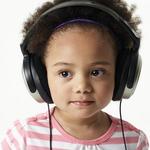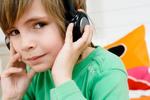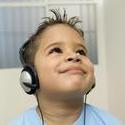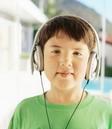|
| |
Facts About Noise: Impact of Noise and Auditory Integration Training
Contact Us
Complete
On-line AIT Checklist
Facts
About Noise-Induced Hearing Loss
-
Noise-induced hearing
loss is often gradual, and therefore hard to detect. Unfortunately, this
type of hearing loss is also often permanent.
-
Everyday noises
can contribute greatly to hearing loss.
-
Because of noise
in our society, hearing loss is appearing much earlier life than just
30 years ago.
-
Some causes of
noise-induced hearing loss are so much a part of our daily lives that
we fail to recognize them as a risk to our hearing health.
-
Ears cannot adjust
to extremely loud or painful noises. So, if you feel that youíve adjusted
to a loud noise, you are probably experiencing hearing
-
In addition to
damaging hearing, researchers know that noise can cause stress related
health problems such as elevated blood pressure, fatigue, reduced increased
frustration and even difficulty in concentrating.
How
Do You know When Noises Are Too Loud?
There are
three things to consider about noise:
-
How loud
-
How long and
-
How close it is
Noises in excess
of 85 decibels are considered by qualified audiologists to be in the
danger zone for hearing health:
- You canít hear
someone three feet away.
- You have pain
in your ears after leaving a noisy area.
- You hear a
ringing or buzzing in your ears immediately after exposure
- to a noise.
- You have difficulty
understanding speech; that is you can hear people talking
- but you canít
understand them.
- You must raise
your voice to be heard by a person with normal hearing.
- Speech sounds
muffled or dull.
What
Do You Do When Noises Are Too Loud?
- The best way to
avoid noise-induced hearing loss is to work on prevention early in life.
- Eliminate unwanted
noise.
- Keep television,
stereo and radio at a low or moderate volume.
- Limit the amount
of time you are exposed to loud noises.
- Use household appliances
that operate quietly.
- Protect your hearing
with devices such as earplugs when operating loud equipment or spending
time in a noisy environment.
When
Are Noises Too Loud?
| Video
arcades |
110
dB |
| Live
music concerts |
110
dB and up |
| Gunshots |
150 -167
dB |
| Movie
theaters |
118
dB |
| Health
clubs/aerobic studios |
120
dB |
| Sporting
events |
127
dB |
| Motorboats
|
85 -115
dB |
| Motorcycles |
95 -120
dB |
| Snowmobiles |
99
dB |
| Lawnmowers |
90
dB |
Original and PDF
provided by the American Speech-Language-Hearing Association
Website: www.asha.org
| |
|






